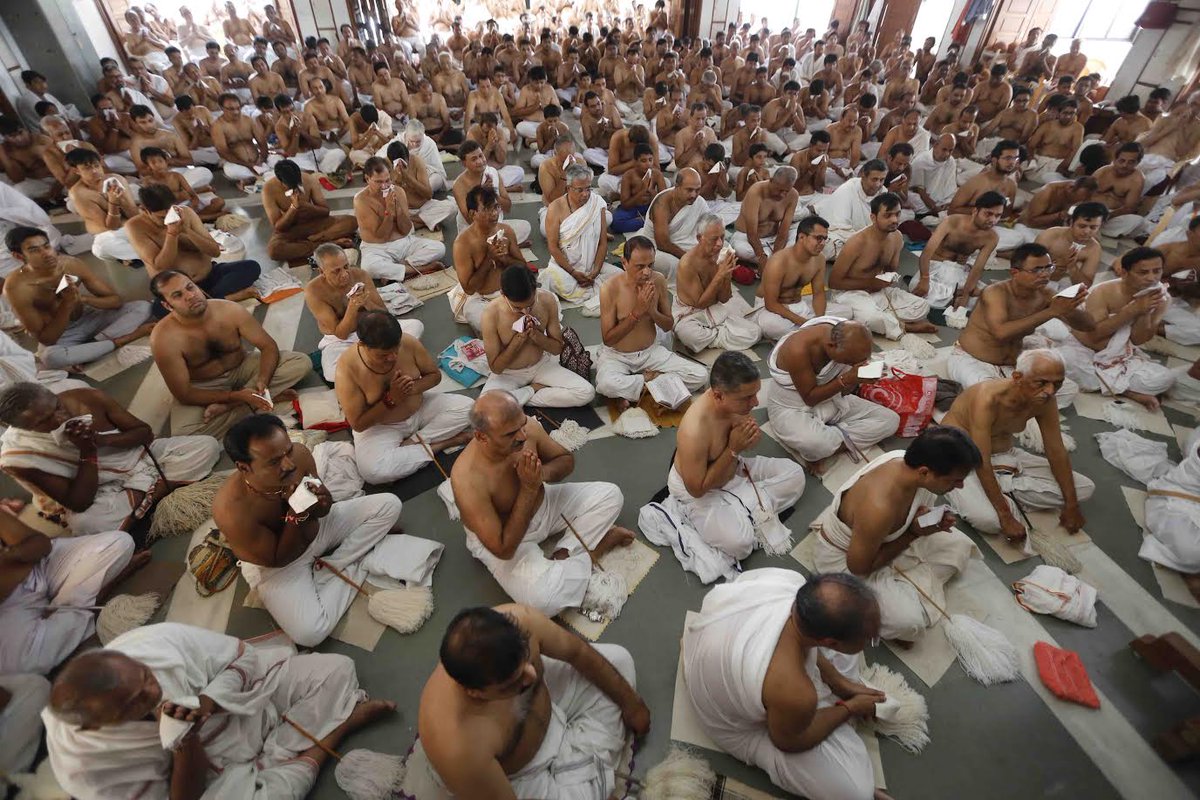Samvatsari 2022: Significance, Rituals & Forgiveness Day
August 29, 2022
Samvatsari is an annual celebration of the Jain community people. The final day of ‘Paryushana Parva‘ falls on the fourth day of the bright half of Bhadrapad month, between mid-August and September. It generally occurs on the same day as Ganesh Chaturthi.
Significance of Samvatsari 2022.
According to the Jain Calendar, Samvatsari, the concluding day of the eight- or ten-day Paryushan celebration, is a significant stage for Jains. The word Samvatsari originates from the Sanskrit language and refers to a “year” in Vedic literature such as the Rigveda and other ancient texts. Jains ask all living things for forgiveness on this day for any mistakes they may have made, whether intentionally or accidentally. They also forgive those who mistreated them in the past.
The day is also known as ‘Kshama Yachna Divas (apology seeking day), Ahimsa Divas (non-violence day), and Daya Divas (kindness day).
Samvatsari Date 2022.
For the two Jain subgroups known as “Shwetambars” and “Digambars,” the festival’s actual day of celebration may vary. Shwetambars generally celebrate the eighth day of Paryushan Parv as Samvatsari, whereas Digambars celebrate on the tenth day of Das Lakshan Parv.
| Jain Sub-groups | Date of Samvatsari |
|---|---|
| Shwetambar | 31st August 2022 |
| Digambar | 9th September 2022 |
Rituals and Traditions
Early in the morning, Jains do Pratikraman, followed by several poojas and prayers. Pratikraman means turning back, in which observers perform Samayik. Samayik is a type of meditation where one reflects on their spiritual journey and revitalizes their faith. There are few acts that Jains must undertake during Samvatsari,
1. Maintain Equanimity (Samayik)
2. Honor the Tirthankaras (Chaturvimshati)
3. Honor Jain Sadhu and Sadhvis (Vandana)
4. Repent wrongdoing (Samvatsari Pratikraman)
5. Meditate and Pray (Kayotsarga)
6. Take vows to maintain self-control (Pratyakhyana)
Jains also visit their relatives and friends, utter “Micchami Dukkadam”, and promise that whatever the grievance may be, they will not carry it forward to the coming year. By saying Micchami Dukkadam, they ask for forgiveness for one’s knowing and unknowing hurtful words, actions, or deeds.
View this post on Instagram
DeshGujarat
Related Stories
Recent Stories
- ACB Gujarat files offence against SK Langa and son for disproportionate asset
- Kshatriya agitators announce part-2 programs in Gujarat
- FM Sitharaman on Gujarat visit on April 20th
- JNK India Limited’s IPO to open on April 23rd
- CR Patil files nomination papers from Navsari Lok Sabha seat
- Miscreants attempt to vandalize BJP office in Rajkot
- Amit Shah files nomination papers for Gandhinagar Lok Sabha seat
